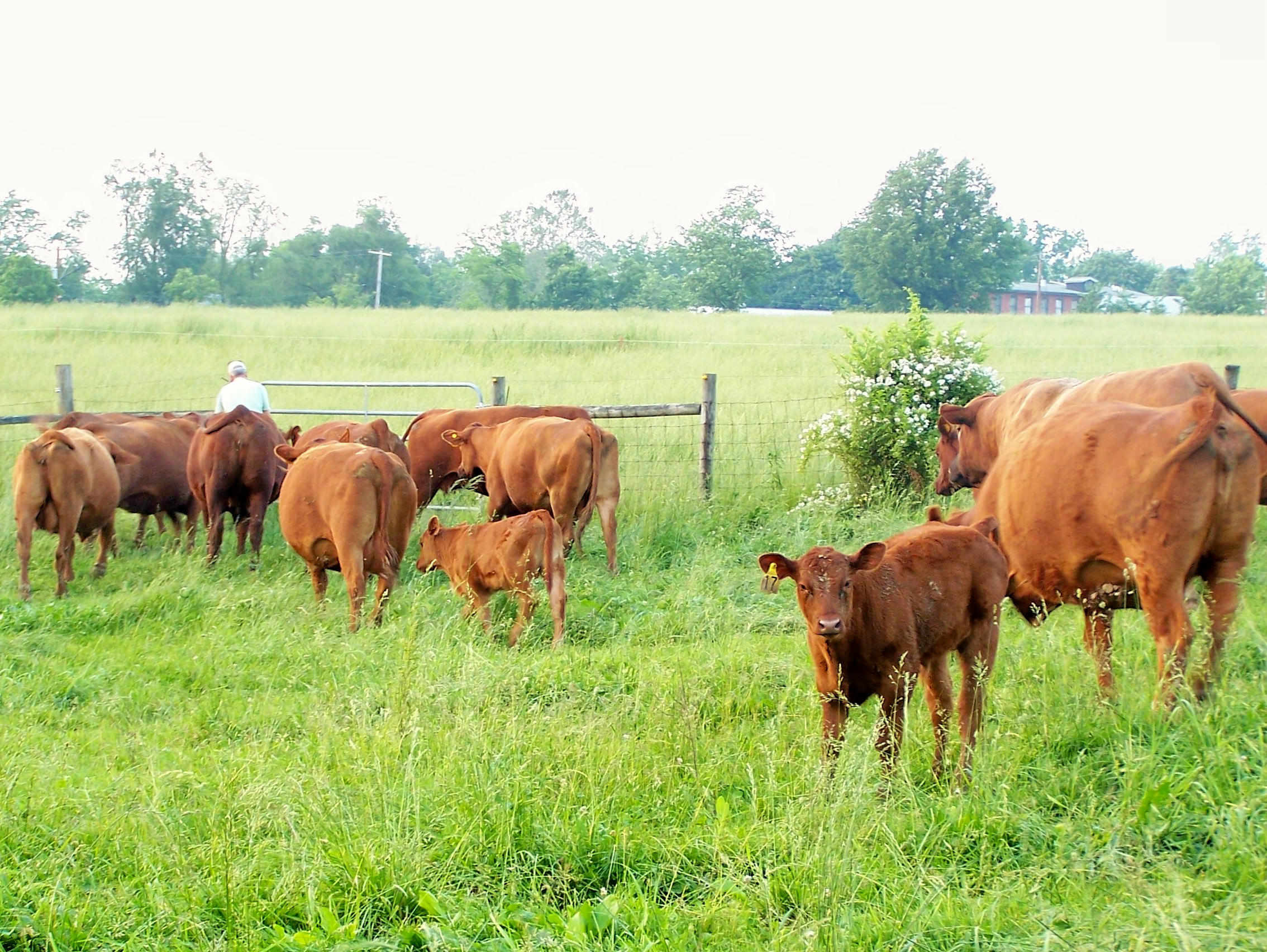
The sky was dubious and the National Weather Service had issued a tornado warning, but over 80 people came out last night (Wednesday, June 1) for the first Summer Farm Tour, hosted by the Bucks County Foodshed Alliance and held at Tussock Sedge Farm. Henry and Charlotte Rosenberger own and run this farm which raises completely grass-fed beef.
Raising beef in a natural, sustainable way
The weather cooperated and how. As the breeze picked up, the temperature dropped along with the humidity. We had ourselves a beautiful summer evening to eat the delicious, varied food brought by everyone, and listen to Henry Rosenberger describe how they raise their beef in a natural, sustainable and grass-fed way.
That means no grains in the winter months, but only grass and hay, sorghum and turnips. No growth hormones or prophylactic antibiotics; no pesticides on the grass. Yum. (To learn more about the distinction between grass-fed and grass-finished, see our previous post, Home, home on the range.)

I’ve heard Henry speak several times – and he is fascinating. Especially as he tells of his and Charlotte’s journey. Henry is part of the Rosenberger Dairy family.
A younger son in a big family, he had to make his own way. He did so by starting a cold storage business when he was 25 years old. It grew and became very successful, so much so that he could sell the business when he was 53 years old.
Then, believe it or not, they decided to become farmers, having had no experience but much passion. Henry started conventional farming growing corn and soy, and raising some cattle. He bought the Monsanto seeds, used pesticides and – lost a lot of money.
“The land around here,” explained Henry, referring to Blooming Glen, near Perkasie, “is not good for farming. The soil is loamy and heavy, highly erodible.”
But it is good for grazing, so the Rosenbergers set out to grow good grass, hay, and alfalfa to provide quality nutrients for beef cattle to munch upon. They got advice from the National Resource Conservation Service, a federal agency who helped them make the transition.
They now own over 500 acres, 440 of which are preserved. They have 300 animals and raise about 100 head a year, all grass-fed. Henry is also bringing in new stock to cross with his Red Angus herd. The new bulls are Red Devon from the Rotokawa Ranch in New Zealand. The Red Devon is an old English heritage breed which has been providing English beef for centuries.
Cattle farmer? More like grass farmer.
Here’s a couple of interesting things I learned last night:
- The Rosenbergers haven’t sprayed their land with pesticide for five years. They have no weeds because they plant crops that keep the soil at a low acid level. That means no corn or soybeans; instead, grass, hay and sorghum.
- Every country has about four optimal months for grazing. If one wants to graze year-round, the farmer needs to plant other crops that can handle colder temperatures, like turnips and sudan sorghum grasses. In the coldest part of winter, when those are gone, the Rosenbergers feed their cattle good quality hay and grass stored in their barn.
- Cattle instinctively know what to eat, that is, what has the best nutrients. That’s what they head for first.
- Cattle do NOT have to be forced into the next paddock. If there is high, yummy grass “on the other side of the fence” they are happy to go.
- The Rosenbergers have focused on growing crops that are nutrient dense. “There are now a lot of government programs,” says Henry, “that help with nutrient management. We have to now report what we take off the land (hay, etc.) and what we put back on it (manure).”
- There are more omega-3 fats in grass-fed cattle than in industrially raised beef.
- Cows fed grain during pregnancy end up birthing substantially larger calves (110 lbs.), resulting in difficult births and a greater need for veterinarians. When the Rosenbergers stopped feeding their cows grain, the birth weight fell substantially (60-75 lbs.), as did their vet bills.
 The Rosenbergers are now turning their focus to increasing sustainable agriculture on their preserved land. “We want to show young farmers that it can be a living,” explains Henry. They started by leasing some of their land across the street to the Blooming Glen Farm, a community-supported-agriculture farm. You can also find Blooming Glen’s delicious produce at the Wrightstown Farmers Market on Saturday mornings.
The Rosenbergers are now turning their focus to increasing sustainable agriculture on their preserved land. “We want to show young farmers that it can be a living,” explains Henry. They started by leasing some of their land across the street to the Blooming Glen Farm, a community-supported-agriculture farm. You can also find Blooming Glen’s delicious produce at the Wrightstown Farmers Market on Saturday mornings.
And the meat is good
Bet you want to know if the meat is good. Well, of course it is. It’s great. It is not tough, like some grass-fed beef can be. “You’ve got to know when the cow is ready. I just look at it, look at the tail head, and know it’s time to go to heaven,” says Henry. His butcher, he says, is amazed at how much meat the Rosenbergers’ cows yield. The corn-fed cows from other farms yield 65% meat, because so much fat ends up in the bucket. The Tussock Sedge cows yield 72%. And they make a darn good steak.

Where and how can you buy the Tussock Sedge beef? The Rosenbergers sell the meat off the farm in packages ranging from a sampler ($90), an eighth of a beef ($329) and up. We got the sampler package last year. It is 12 lbs. of beef (that’s $7.50/lb.) including: 3 assorted steaks, 1 roast, 1 lb. cube/stew meat, 5 lbs. ground beef and 1 lb. chipped steak. Not only is it a good deal, but with an assortment of cuts in the freezer, you’ve got everything you need at hand.
Tussock Sedge is open for pick-ups on Saturdays from 10 am to 2 pm, and Tuesdays from 1 pm to 5 pm. You can view all this information on their website and reach them by phone at 215.257.4868.
Tussock Sedge Farm
1239 Rt. 113, PO Box 59
Blooming Glen, PA 18911
215.257.4868

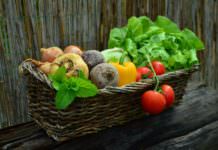

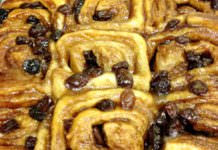
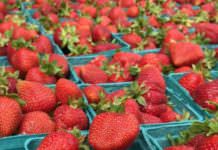
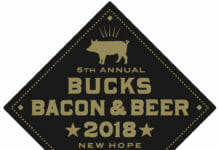
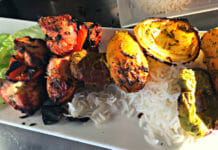

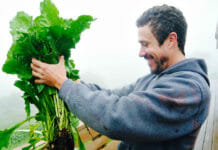
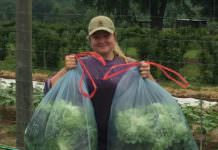
![What we’re reading [Oct 16 2017]](https://www.buckscountytaste.com/wp-content/uploads/2017/10/coffee_macbook_reading_pexels-photo-414630-218x150.jpeg)
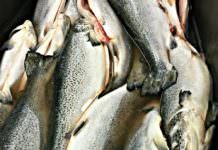

[…] Headhouse Market. The farm began in 2006, on land leased from Henry and Charlotte Rosenberger of Tussock Sedge Farm in Blooming Glen (Perkasie). Tricia Borneman and Tom Murtha have farmed together for 11 years using […]
[…] Farm in Yardley. These farm tours have become very popular – and delicious. The first one at Tussock Sedge Farm drew over 85 people; the second one at Purely Farm and Just One Seed Farm in Pipersville was […]
[…] meetings and summer farm tours educate and connect consumers with local food producers and topics related to sustainable food. […]
[…] include Springtown’s Meadow Brook Farms (beef) and Purely Farm (pork) in Ottsville, or Tussock Sedge Farm (beef) in Blooming Glen. You can buy a sampler pack from Tussock Sedge Farm that includes a total […]
[…] Learn more about the Rosenbergers and Tussock Sedge Farm in our post: Meet Your Farmer: Tussock Sedge Farm. […]